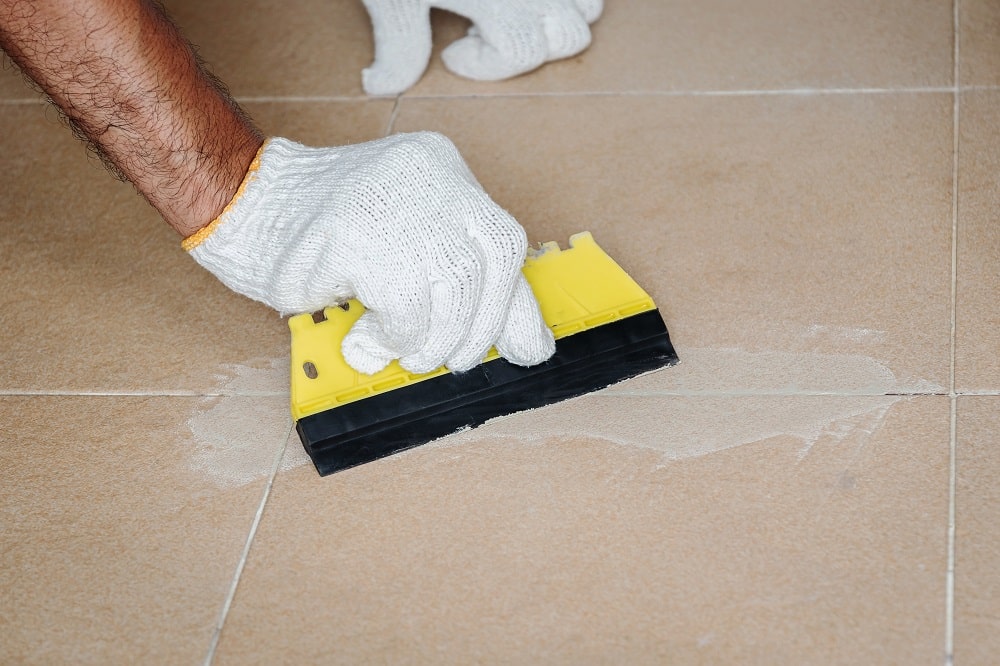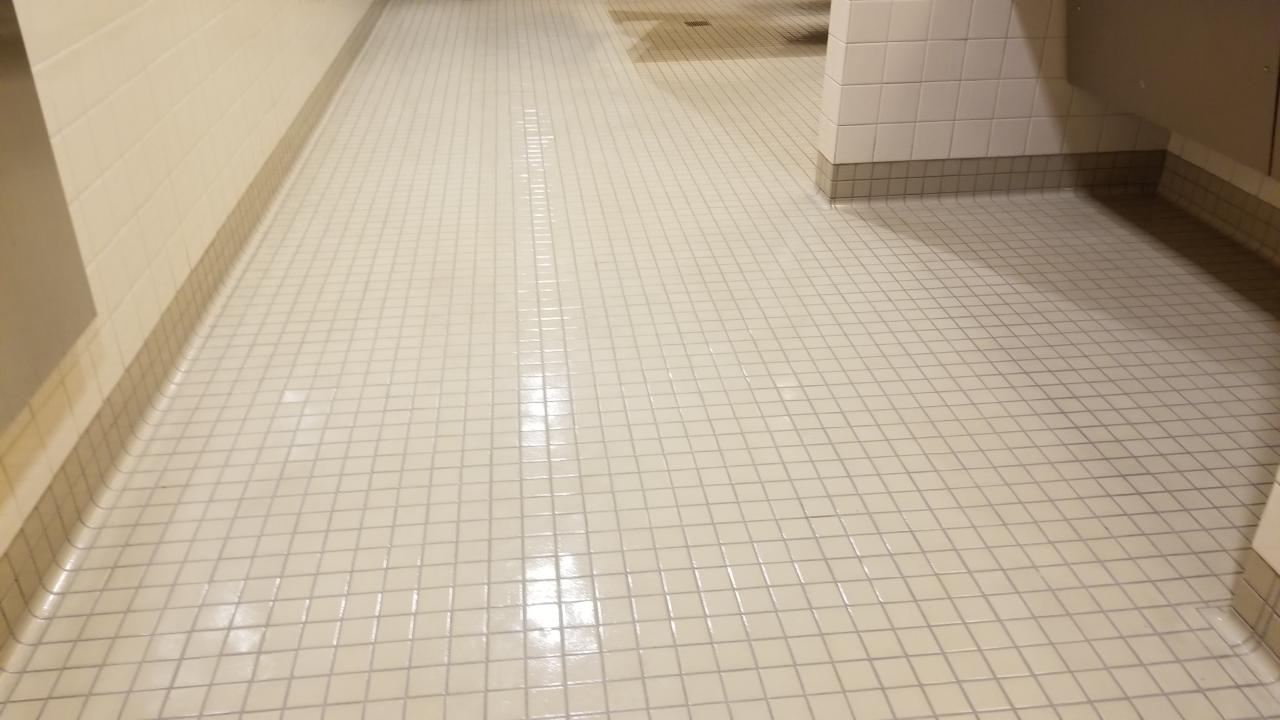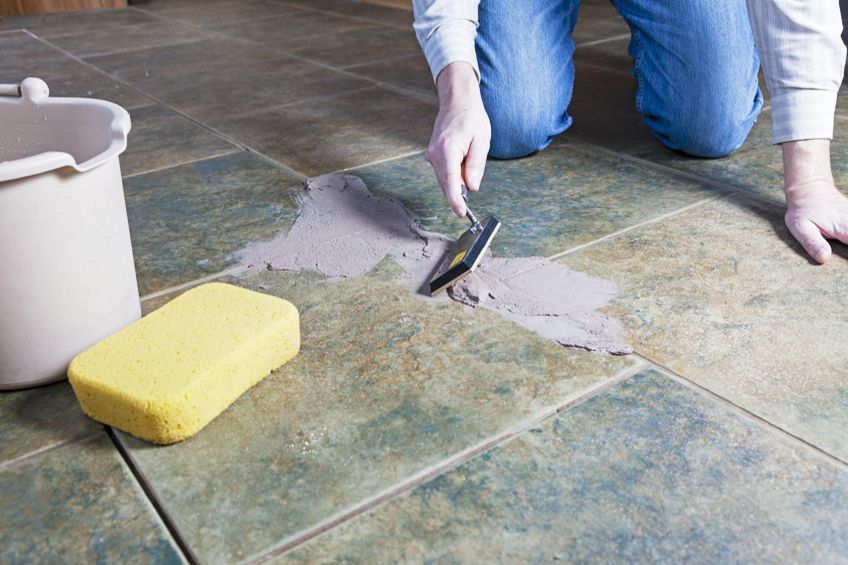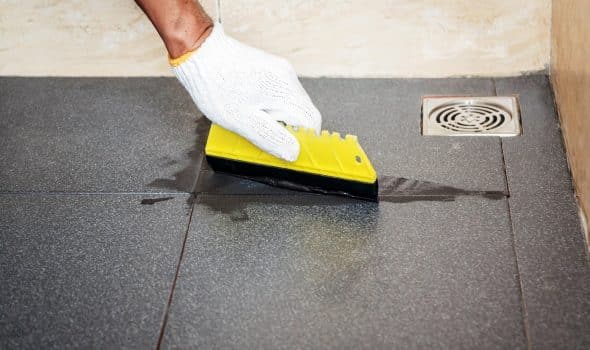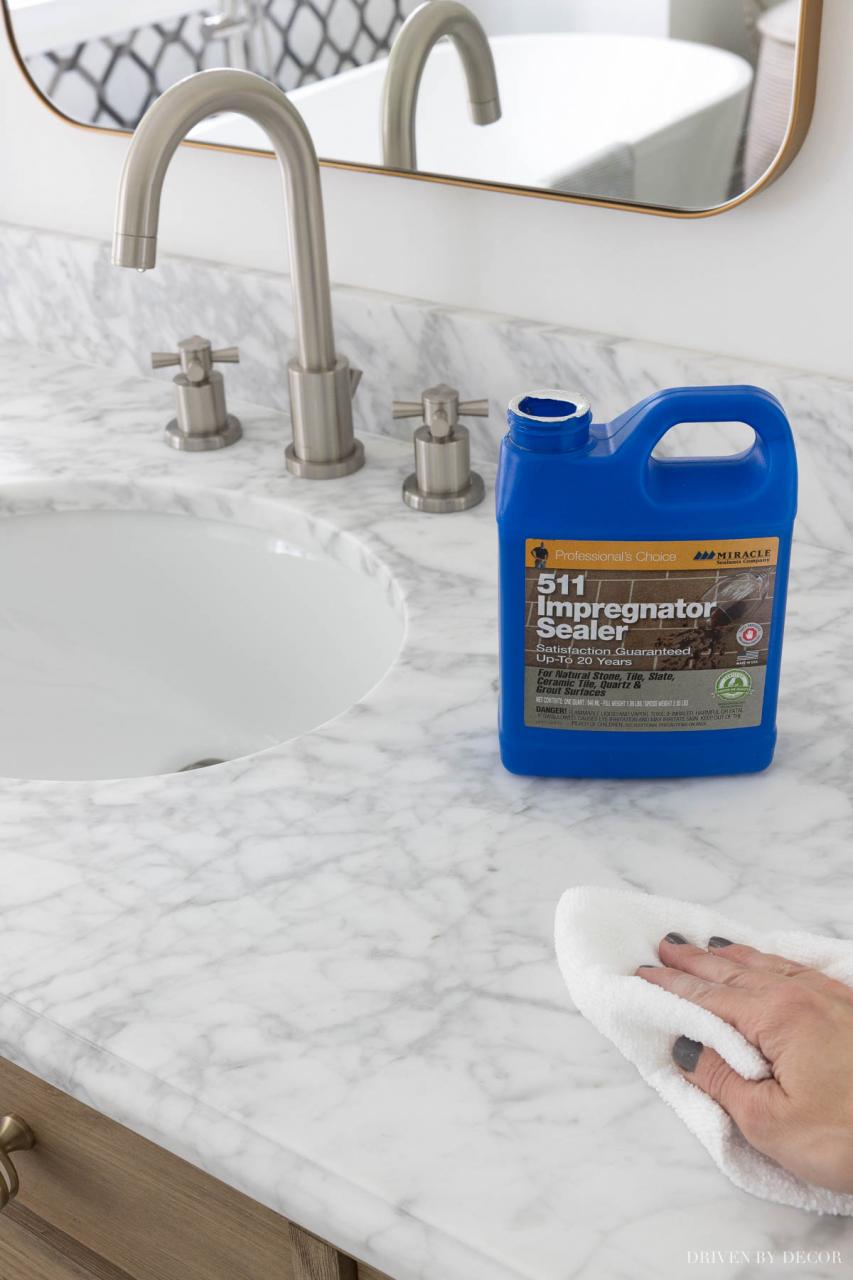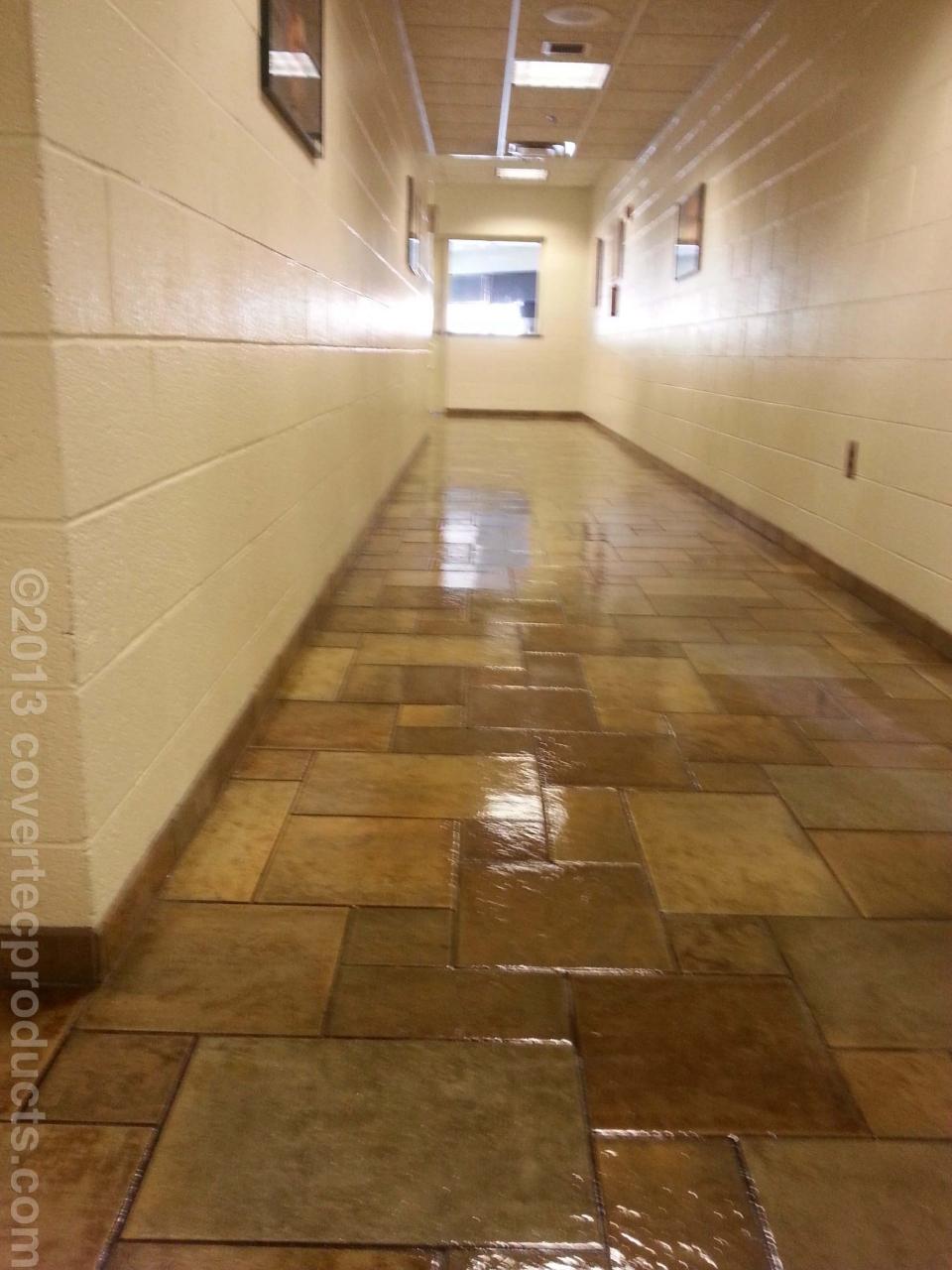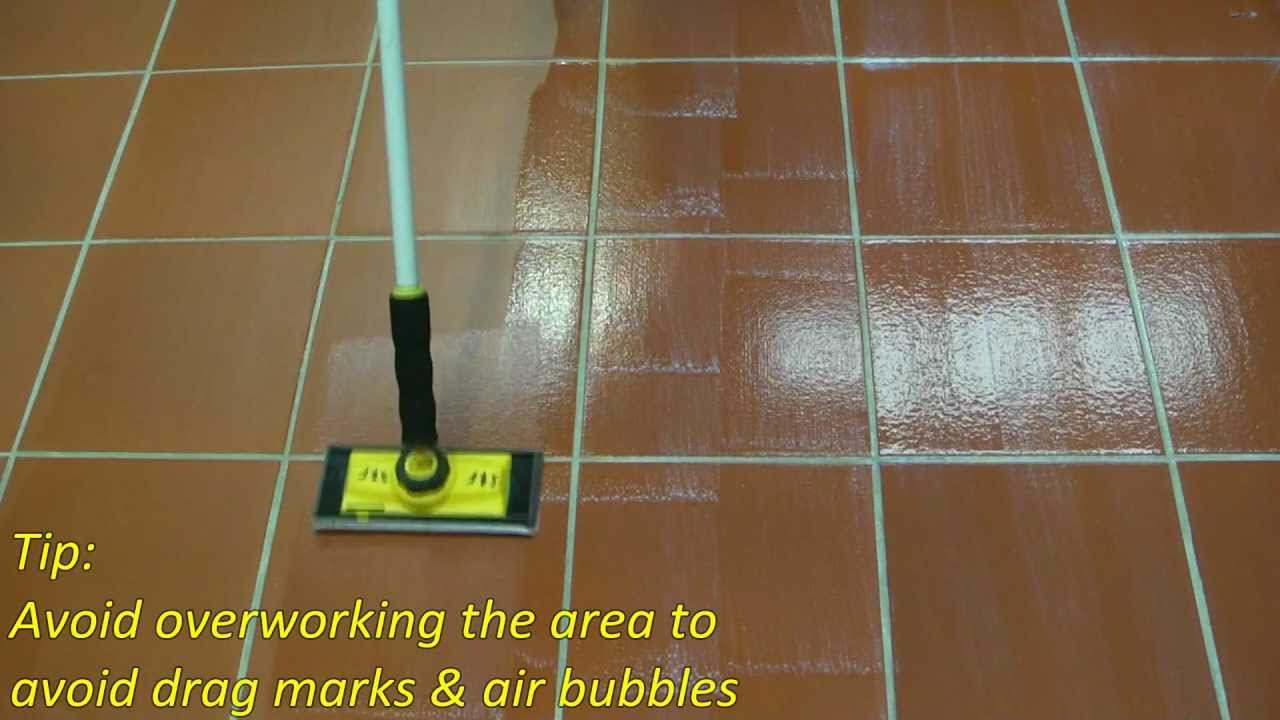Best Bathroom Tile Sealer
Understanding the Importance of Bathroom Tile Sealers
Bathroom tile sealer is an essential component in maintaining the longevity and aesthetic appeal of your bathroom tiles. It acts as a protective layer, preventing water, moisture, stains, and dirt from penetrating the tile surface. Understanding the importance of bathroom tile sealers will help you make informed decisions when it comes to tile maintenance.
- Protection Against Water Damage: Bathroom tiles are constantly exposed to water and moisture, which can seep into the grout lines and cause damage over time. By applying a high-quality tile sealer, you create a barrier that prevents water from seeping through, reducing the risk of mold, mildew, and structural damage.
- Stain Prevention: Bathroom tiles are prone to staining, especially from soap scum, hard water minerals, and personal care products. A tile sealer acts as a protective shield, making it easier to clean and maintain your tiles. It prevents stains from penetrating the tile surface, ensuring your bathroom tiles stay pristine and attractive.
- Enhanced Durability: The application of a bathroom tile sealer can significantly enhance the durability of your tiles. It strengthens the tile surface, making it more resistant to cracks, chips, and wear and tear. With proper sealer application, you can extend the lifespan of your bathroom tiles and avoid costly repairs or replacements.
- Aesthetic Appeal: Aside from its protective qualities, a high-quality bathroom tile sealer can enhance the visual appeal of your tiles. It adds a glossy finish, depth, and richness to the tile surface, making it look more vibrant and luxurious. Additionally, it can bring out the natural beauty of the tile material, whether it’s ceramic, porcelain, or natural stone.
- Health and Hygiene: Bathroom tiles can harbor bacteria, mold, and mildew, especially in areas with high humidity and moisture. By applying a tile sealer, you create a hygienic environment, reducing the risk of bacterial growth and promoting a healthier bathroom space. Sealed tiles are easier to clean and sanitize, ensuring a safe and hygienic environment for you and your family.

Factors to Consider When Choosing the Best Bathroom Tile Sealer
Choosing the right bathroom tile sealer is essential for achieving optimal protection and longevity for your tiles. With various options available in the market, it can be overwhelming to make the right choice. However, considering certain factors can help you select the best bathroom tile sealer for your specific needs.
Type of Tile: Different types of tiles require different types of sealers. Porcelain, ceramic, natural stone, and glass tiles each have unique characteristics that may affect the choice of sealer. For example, natural stone tiles like marble or granite may require a penetrating sealer, while glazed ceramic tiles may benefit from a topical sealer. Consider the material of your tiles and choose a sealer specifically formulated for that type.
Sealer Performance: Evaluate the performance qualities of the sealer, such as its resistance to water, stains, and chemicals. Look for a sealer that provides long-lasting protection and durability. Consider factors like its ability to repel water, prevent staining, and resist wear and tear. Additionally, check if the sealer is suitable for high humidity environments like bathrooms.
Application and Maintenance: Consider the ease of application and maintenance required for the sealer. Some sealers require multiple coats, while others may only need a single application. Determine if you have the time and expertise to apply the sealer yourself, or if you need professional assistance. Additionally, consider the maintenance requirements, such as how frequently the sealer needs to be reapplied and the recommended cleaning products.
VOC Content and Environmental Impact: Volatile Organic Compounds (VOCs) are chemicals that can be released into the air during the application and curing process of sealers. These chemicals can have adverse effects on indoor air quality and the environment. Look for low or zero VOC sealers that are environmentally friendly and safe for indoor use.
Reviews and Recommendations: Research and read reviews from reliable sources or consult with professionals in the industry to gather insights and recommendations. Consider the experiences and feedback from others who have used the specific sealer you are considering. This will help you gauge the performance, reliability, and overall satisfaction with the product.
Our Recommendations for the Best Bathroom Tile Sealers
When it comes to choosing the best bathroom tile sealer, there are numerous options available in the market. To help you make an informed decision, we have compiled a list of our top recommendations for the best bathroom tile sealers. These sealers have been selected based on their performance, durability, ease of application, and customer reviews.
Aqua Mix Sealer’s Choice Gold: Aqua Mix Sealer’s Choice Gold is a premium penetrating sealer that offers excellent protection against water, stains, and mold. It is suitable for a wide range of tile materials, including natural stone, porcelain, and ceramic. This sealer penetrates deep into the tile surface, creating a durable barrier without altering the appearance of the tiles. It is easy to apply and provides long-lasting protection.
Miracle Sealants 511 Impregnator: Miracle Sealants 511 Impregnator is a popular choice for its versatility and performance. It is a penetrating sealer that provides superior protection against water, stains, and oil. This sealer is suitable for both interior and exterior applications and works well on a variety of tile materials. It is easy to apply and has a low VOC formula, making it safe for indoor use.
Tuff Duck Granite, Grout, and Marble Sealer: Tuff Duck Granite, Grout, and Marble Sealer is specifically designed for natural stone tiles like granite and marble. It provides excellent protection against water, stains, and oil-based substances. This sealer is easy to apply and dries quickly, leaving behind a natural-looking finish. It is a durable sealer that offers long-lasting protection for your natural stone tiles.
Black Diamond Stoneworks Ultimate Grout Sealer: If you are primarily concerned with protecting and sealing your grout lines, the Black Diamond Stoneworks Ultimate Grout Sealer is an excellent choice. This sealer is specifically formulated to seal and protect grout lines from water, stains, and mold. It is easy to apply and provides a long-lasting, invisible barrier that helps keep your grout lines clean and pristine.
Custom Building Products Aqua Mix High Gloss Sealer: For those looking to enhance the aesthetic appeal of their bathroom tiles, the Custom Building Products Aqua Mix High Gloss Sealer is a fantastic option. This sealer not only provides excellent protection against water and stains but also adds a high-gloss finish to your tiles. It is easy to apply and brings out the natural beauty of your tiles, giving them a luxurious and polished look.
How to Apply Bathroom Tile Sealer Effectively
Applying a bathroom tile sealer is a relatively straightforward process that can be done by following a few simple steps. This step-by-step guide will walk you through the process of applying a bathroom tile sealer effectively, ensuring maximum protection and longevity for your tiles.
Clean and Prepare the Tiles: Before applying the sealer, it is crucial to clean the tiles thoroughly. Use a mild detergent or tile cleaner to remove any dirt, grime, or stains. Scrub the tiles gently with a soft brush or sponge, paying extra attention to the grout lines. Rinse the tiles with clean water and allow them to dry completely before proceeding.
Test the Sealer: It is always recommended to perform a small test in an inconspicuous area to ensure compatibility and desired results. Apply a small amount of sealer on a tile or grout line and observe its effect. This will help you determine the absorbency of the tile and the amount of sealer required for proper coverage.
Apply the Sealer: Once the tiles are clean and dry, begin applying the sealer. Follow the manufacturer’s instructions regarding the application method and coverage area. In most cases, a brush or sponge applicator is used. Start from one corner or edge and work your way across the tiles, ensuring even coverage. Pay special attention to the grout lines, as they are more porous and require adequate sealing.
Allow the Sealer to Penetrate: After applying the sealer, allow it to penetrate the tile surface for the recommended duration. This can range from a few minutes to several hours, depending on the product. Avoid walking on the tiles or introducing any moisture during this curing period to ensure proper absorption and effectiveness.
Wipe off Excess Sealer: Once the sealer has penetrated, carefully wipe off any excess sealer from the tile surface using a clean, lint-free cloth. Be thorough in this step to prevent the formation of a hazy or sticky residue. Pay attention to the grout lines, ensuring that they are free from excess sealer as well.
Allow the Sealer to Cure: After wiping off the excess sealer, allow the tiles to cure for the recommended time. This is typically 24 to 48 hours but refer to the manufacturer’s instructions for specific guidelines. During this time, avoid any moisture exposure or heavy use of the tiles to allow the sealer to fully cure and provide optimal protection.
Keeping Your Bathroom Tiles Protected and Beautiful
Once you have applied a sealer to your bathroom tiles, it is important to follow proper maintenance practices to keep them protected and looking beautiful. Regular cleaning and care will help maintain the integrity of the sealer and extend the lifespan of your tiles. Here are some essential maintenance tips for keeping your bathroom tiles in top condition.
Regular Cleaning: Regular cleaning is crucial to prevent the buildup of dirt, grime, and soap scum on your bathroom tiles. Use a mild detergent or tile cleaner and a soft brush or sponge to clean the tiles regularly. Avoid using abrasive cleaners or scrub brushes that can damage the sealer and the tile surface. Remember to clean the grout lines as well, as they can accumulate dirt and stains.
Avoid Harsh Chemicals: When cleaning your bathroom tiles, avoid using harsh chemicals that can damage the sealer and the tiles themselves. Acidic cleaners, bleach, and ammonia-based products can strip away the sealer and cause discoloration or etching on the tiles. Opt for mild, pH-neutral cleaners that are safe for use on sealed tiles.
Wipe up Spills Promptly: Accidents happen, and spills are inevitable in a bathroom. However, it is important to wipe up spills promptly to prevent them from seeping into the tiles or grout lines. Liquids like shampoo, conditioner, or cleaning products can contain chemicals that can damage the sealer or stain the tiles. Clean up spills immediately with a soft cloth or paper towel.
Use Gentle Cleaning Tools: When cleaning your bathroom tiles, choose gentle cleaning tools to avoid scratching or damaging the surface. Opt for soft brushes, microfiber cloths, or non-abrasive sponges. Avoid using abrasive scrub brushes or scouring pads that can scratch the sealer or the tiles. Gentle cleaning tools will help maintain the integrity of the sealer and keep your tiles looking their best.
Reapply Sealer as Needed: Over time, the sealer on your bathroom tiles may wear off or become less effective. It is important to monitor the condition of the sealer and reapply it as needed. As a general rule, it is recommended to reseal your bathroom tiles every 1-3 years, depending on the level of use and wear. Follow the manufacturer’s instructions for proper application and curing.
Best Grout Sealer – Our Recommendations for the Top Grout Sealant
7 Best Grout Sealers For Shower Reviews + Guide
Marble Tile in a Bathroom: Would I Do It Again?! – Driven by Decor
GlazeGuard Ceramic u0026 Porcelain Tile Sealer High Gloss, Wet Look
Skylarlife Grout Silicone Caulk Whitener Best for Home
What Is The Best Sealer For Ceramic Tile – SeniorCare2Share
Related Posts:
- Small Bathroom Tile Ideas White
- Yellow Bathroom Tile Ideas
- How To Clean Mold From Bathroom Tile Grout
- Bathroom Tile Colors Designs
- Can You Paint Bathroom Tile Walls
- How To Redo Bathroom Tile Grout
- How To Regrout Your Bathroom Tiles
- Travertine Bathroom Tile Ideas
- How To Clean Bathroom Tile And Grout
- Natural Stone Bathroom Tile Ideas

